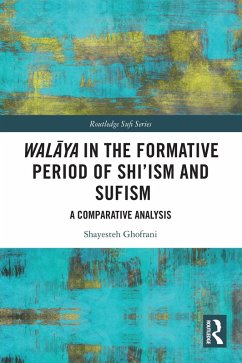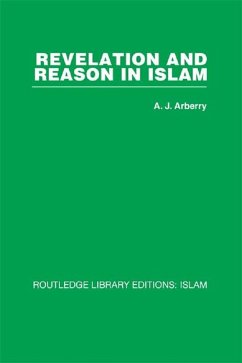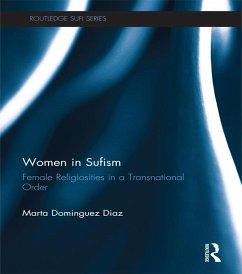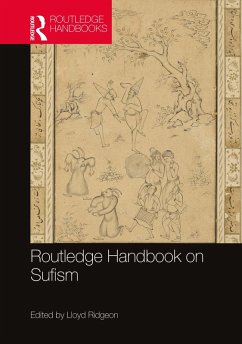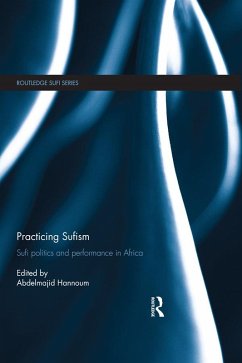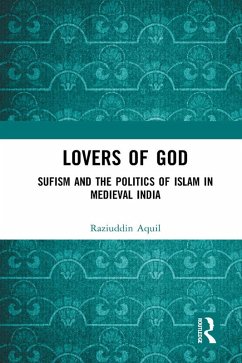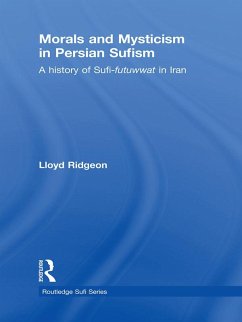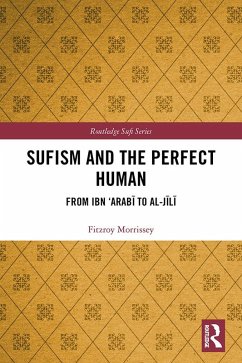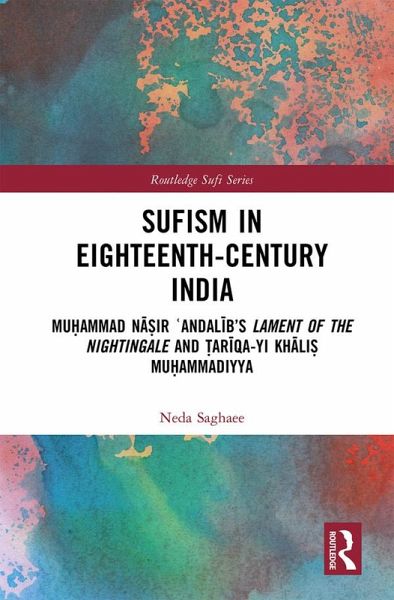
Sufism in Eighteenth-Century India (eBook, PDF)
Mu¿ammad Na¿ir ¿Andalib's Lament of the Nightingale and ¿ariqa-yi Khali¿ Mu¿ammadiyya
Versandkostenfrei!
Sofort per Download lieferbar
40,95 €
inkl. MwSt.
Weitere Ausgaben:

PAYBACK Punkte
20 °P sammeln!
Sufism in Eighteenth-Century India focuses on one particular treasure from surviving Persian manuscripts in India, Nala-yi ¿Andalib, written by Mu¿ammad Näir ¿Andalib (d. 1759), a Naqshbandi Mujaddidi mystical thinker. It explores the convergence and interrelation of the text with its context to find how ¿Andalib revisits the central role of the Prophet as the main protagonist in his allegorical love story with great attention to the circumstances of the Muslim community during the eighteenth century.The present volume elucidates ¿Andalib's Sufism calling for a return to the pristine for...
Sufism in Eighteenth-Century India focuses on one particular treasure from surviving Persian manuscripts in India, Nala-yi ¿Andalib, written by Mu¿ammad Näir ¿Andalib (d. 1759), a Naqshbandi Mujaddidi mystical thinker. It explores the convergence and interrelation of the text with its context to find how ¿Andalib revisits the central role of the Prophet as the main protagonist in his allegorical love story with great attention to the circumstances of the Muslim community during the eighteenth century.
The present volume elucidates ¿Andalib's Sufism calling for a return to the pristine form of Islam and the idealization of the first Muslim community. It considers his ¿ariqa-yi Khali¿ Mu¿ammadiyya as a derivation of the ¿ariqa-yi Mu¿ammadiyya, which had an important role in promoting Islam. The book attempts to clarify and systematize all of the concepts which ¿Andalib employs within the framework of the Khali¿ Mu¿ammadiyya, such as the state of the näir and the Khali¿ Mu¿ammadi. It addresses controversial topics in religion, such as the struggles between Shi¿a and Sunni Muslims, and the controversies between Shuhudis and Wujudis. It illuminates two key personalities, Abu Bakr al-¿iddiq and ¿Ali b. Abi ¿alib, and two types of relationships, the mäiyya and ¿ayniyya, with the spirituality of the Prophet.
The book will be of interest to scholars and students interested in Islamic studies, Islamic mysticism, the intellectual history of Muslims in South Asia, the history of the Mughal Empire, Persian literature, studies of manuscripts, Islamic philosophy, comparative studies of religions, social studies, anthropology, and debates concerning the eighteenth century, such as the transition from pre-colonialism to colonialism and the origins of modernity in Islam.
The present volume elucidates ¿Andalib's Sufism calling for a return to the pristine form of Islam and the idealization of the first Muslim community. It considers his ¿ariqa-yi Khali¿ Mu¿ammadiyya as a derivation of the ¿ariqa-yi Mu¿ammadiyya, which had an important role in promoting Islam. The book attempts to clarify and systematize all of the concepts which ¿Andalib employs within the framework of the Khali¿ Mu¿ammadiyya, such as the state of the näir and the Khali¿ Mu¿ammadi. It addresses controversial topics in religion, such as the struggles between Shi¿a and Sunni Muslims, and the controversies between Shuhudis and Wujudis. It illuminates two key personalities, Abu Bakr al-¿iddiq and ¿Ali b. Abi ¿alib, and two types of relationships, the mäiyya and ¿ayniyya, with the spirituality of the Prophet.
The book will be of interest to scholars and students interested in Islamic studies, Islamic mysticism, the intellectual history of Muslims in South Asia, the history of the Mughal Empire, Persian literature, studies of manuscripts, Islamic philosophy, comparative studies of religions, social studies, anthropology, and debates concerning the eighteenth century, such as the transition from pre-colonialism to colonialism and the origins of modernity in Islam.
Dieser Download kann aus rechtlichen Gründen nur mit Rechnungsadresse in A, B, BG, CY, CZ, D, DK, EW, E, FIN, F, GR, HR, H, IRL, I, LT, L, LR, M, NL, PL, P, R, S, SLO, SK ausgeliefert werden.





